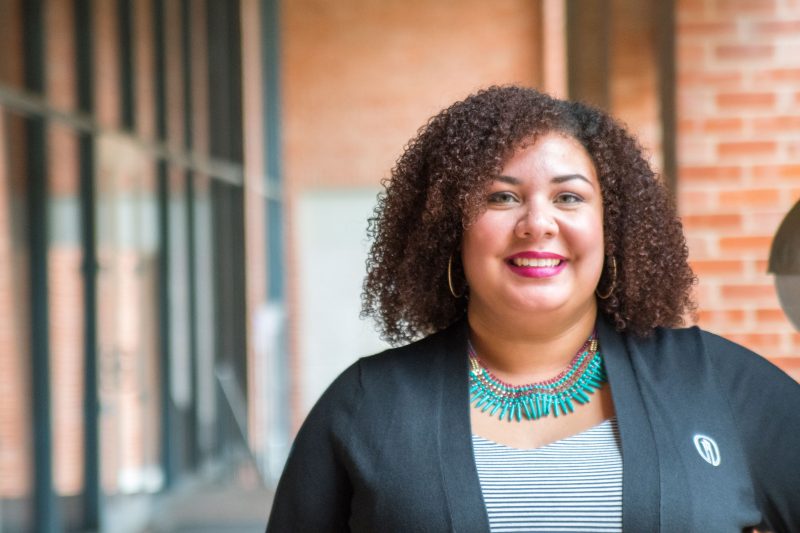Imon Ferguson, a 2017 graduate who majored in physics and mathematics, sipped his coffee in Einstein Bros. Bagels one fall morning of his senior year. This was no ordinary breakfast for Ferguson. He was waiting for Jamie Thompson, the director of Student Involvement, to discuss the possibility of joining an ad hoc diversity committee.
From this point on, Ferguson, as the student advisor on this project, would help form the new structure of diversity administration at Trinity University. In his role as student advisor, Ferguson gave input that reflected the campus climate on diversity and inclusion at the time. One reason Danny Anderson, president of Trinity University, authorized this ad hoc diversity committee was due to the recent departure of the coordinator for diversity in 2016.
“In addition, at the time, there had been a marked increase in prominent, racially-charged incidents, the waves of which were felt all across the nation. This was our opportunity to provide our recommendations on how to build a successful diversity and inclusion team from the ground up, intertwining our vision with the university’s mission,” Ferguson wrote in an email interview.
The ad hoc diversity committee was made up of faculty across many departments at Trinity, including Sheryl Tynes, vice president for Student Life, and Ferguson as the student advisor. After a year of researching other universities and countless hours spent in discussion, the committee recommended that the position of coordinator for diversity be heightened to director for diversity and inclusion.
The committee then formed a separate search committee, which included Jamie Thompson and Michael Soto, to find the person who would fill the position of director for diversity and inclusion. This search led to the hiring of Allison Roman, who started working at Trinity University at the beginning of this semester.
“My concern was that we shouldn’t settle. When she did her presentation for us, she blew us out of the water. She talked about her near-term vision, her medium-term vision and she talked about her dream big vision, and she had great ideas in each of them,” Tynes said.
Roman worked with students at her previous institution, Grand Valley State University, as the assistant director for multicultural affairs and as the assistant director of the university’s Women’s Center. As of now, Roman will focus on her “near-term vision.”
Roman hopes to do this by sending out a campus climate survey to hear about the experiences of people at Trinity. Her plan also includes talking face to face with students and faculty to get opinions on how the community feels Trinity should approach enhancing diversity and inclusion. Roman has been meeting with faculty and students since the beginning of the semester, sometimes even going for coffee at Einstein Bros. Bagels.
“The first thing would be doing a review of what already exists, doing some focus groups and interviews with stakeholders — students, faculty, staff and community members — to see what opportunities that we can have to build and mobilize around diversity and inclusion,” Roman said.
Because Roman’s department is new, her role as director of diversity and inclusion is not well established. Roman aims to work with student diversity clubs and get faculty involved in the efforts made by students.
“This position is unique because not only do I get to work with students, but I also get to work with faculty and staff and get to shape the services that we would provide. There are already things happening even without this office, so I see my role as being able to connect those things so that I’m not the sole one that is doing them. I don’t think diversity and inclusion work should fall on one office. It should be seen throughout the campus,” Roman said.
Roman’s job as director will necessitate a campus-wide approach.
“I think it is vital we understand that building a diverse and inclusive community is no easy task. This task cannot be achieved by the diversity and inclusion team alone — it will require student, staff and faculty engagement and a commitment by the institution and its broader community to equity, open-mindedness and progress,” Ferguson wrote.













